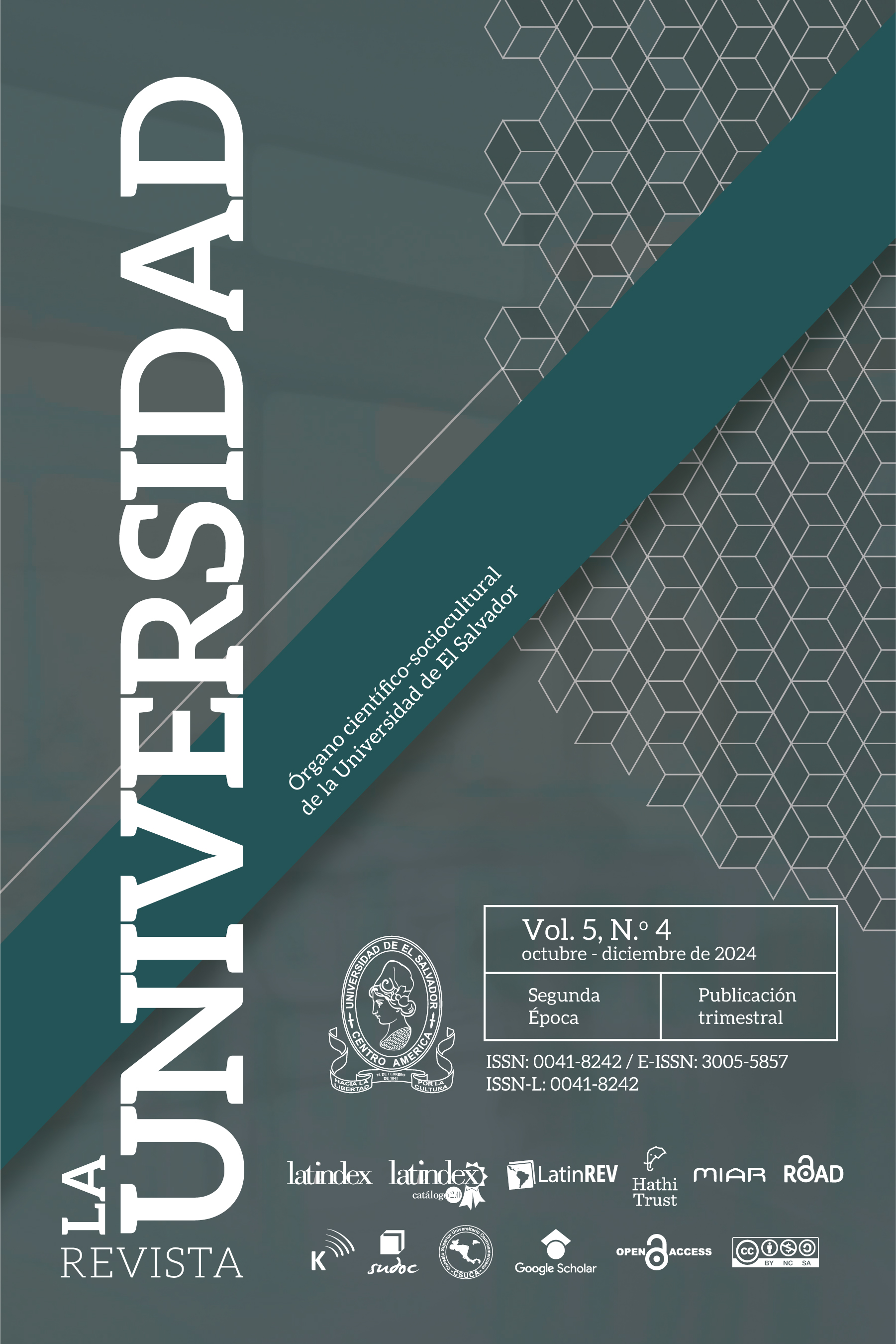Relevance and impact of university research in the economic sciences of the National Autonomous University of Nicaragua, Managua–Centro Universitario Regional de Carazo
Keywords:
development, economic sciences, relevance, social impact, university researchAbstract
The purpose of this text is to serve as a theoretical reference for a research model that contributes to the economic sciences of the National Autonomous University of Nicaragua, where the role of university research, its relevance and impact on the development of the country is highlighted from a general point of view taking the Sustainable Development Goals of the 2030 Agenda as a development paradigm. It is necessary to stop along the way and stop to reflect on the research process that is being developed for both undergraduate and postgraduate degrees in economic sciences. This essay highlights the concept of relevance and its dynamism in the social, political, economic and cultural environment, which is related to research in economic sciences and the need to give priority to some topics to contribute to the solution of urgent needs. raising the need for a humanistic methodology in economic science research because it is social in nature. A small reflection is made on university research and its correspondence with the strategic lines of national development within the framework of the 2030 Agenda and the importance of establishing impact indicators in research, as well as a monitoring methodology so that the meaning is maintained. of relevance and make the necessary contributions from research to the development of the country.
Downloads
References
Calderón Hernández, G., & Castaño Duque, G. A. (2005). Investigación en Administración en América Látina: Evolución y Resultados. Manizales: UNIVERSIDAD NACIONAL DE COLOMBIA.
Consejo Nicaraguense de Ciencia y Tecnología-Consejo Nacional de Universidades. (2014). Construcción del Sistema de Indicadores de Ciencia, Tecnología e Innovación en Nicaragua. Managua: CONICYT-CNU.
Díaz Corrales, A., & Pedroza Pacheco, M. (Enero-Marzo de 2018). Indicadores de impacto en la investigación científica. Revista Científica de FAREM-Estelí(25), 60-66.
González, M., Chirinos, E., Faría, C., Olivero, J., & Boscán, J. (3, julio de julio-septiembre de 2015). Pertinencia e impacto social de la investigación universitaria en Venezuela. (U. d. Zulia, Ed.) Multiciencias, 15(3), 303-309.
Mendoza Reyes, K. P. (2005). Impacto de la construcción de la marca turística e imagen país en el desarrollo del turismo receptivo en Nicaragua. Managua: UAM.
Morales Jarquín, L. (2005). La Ruta del café como un factor de desarrollo regional. Managua: UAM.
Naciones Unidas. (2018). La Agenda 2030 y los Objetivos de Desarrollo Sostenible: una oportunidad para América Latina y el Caribe. Santiago.
Naidorf, J. (2011). CRITERIOS DE RELEVANCIA Y PERTINENCIA DE LA INVESTIGACIÓN UNIVERSITARIA Y SU TRADUCCIÓN EN FORMA DE PRIORIDADES. Revista de la Asociación de Sociología de la Educación, 4(1), 48-58. Obtenido de www.ase.es/rase
Pérez Frías, A., & Pérez R., I. E. (Mayo- noviembre de 2004). Conocimiento, gestión e innovación tecnológica como clave del rendimiento económico. (U. d. Zulia, Ed.) Revista de ciencias sociales (Ve), X(2), 338-349.
Pérez, M. M., & Núñez González, S. (2020). Conceptualización y definición de líneas de investigación prioritarias a nivel de la universidad. Revista Universidad y Sociedad, 12(4), 10.
Red de Indicadores de Ciencia y Tecnología -Iberoamericana e Interamericana- (RICYT). (2019). EL ESTADO DE LA CIENCIA, Principales Indicadores de Ciencia y Tecnología Iberoamericanos / Interamericanos. Buenos Aires: RICYT.
Regalado Hernández, R. (2003). Modelo de Tutoría para instituciones públicas de educación superior. Universidad Autónoma del estado de Hidalgo.
Restrepo Gómez, B. (mayo de 2003). INVESTIGACIÓN FORMATIVA E INVESTIGACIÓN PRODUCTIVA DE CONOCIMIENTO EN LA UNIVERSIDAD . (U. Central, Ed.) Nómadas (Col)(18), pp. 195-202. Obtenido de http://www.redalyc.org/articulo.oa?id=105117890019
Suarez, M. (2005). Para entender la sociedad delConocimiento. Santo Domingo: Universidad APEC.
Tamayo y Tamayo, M., & Restrepo Alzate, M. (2011). Cultura Investigativa en la Universidad. Cali-Colombia: Centro de Recursos para la enseñanza y el aprendizaje.
Tovar Pineda, M. d. (2000). LA INVESTIGACIÓN CUALITATIVA EN EDUCACIÓN: NECESIDAD Y RETO PARA LOS MODELOS PEDAGÓGICOS CONTEMPORÁNEOS. Revista cubana de Psicología.
UNAN, Managua. (Junio de 1992). Reglamento del trabajo de los profesores en la Universidad Nacional Autonóma de Nicaragua- Managua. UNAN-MANAGUA.
Borrero, A. (2008). La Universidad. Estudios sobre sus orígenes, dinámicas y tendencias. Bogotá, Colombia: Editorial Pontificia Universidad Javeriana.
Martínez, M. (2013). Epistemología y metodología cualitativa en las ciencias sociales. México: Trillas.
Downloads
Published
Issue
Section
License
Copyright (c) 2024 Authors who publish in Revista La Universidad agree to the following terms: Authors continue as owners of their works, non-exclusively assigning dissemination rights to La Universidad Journal under the standards of the Attribution-NonCommercial-ShareAlike License: CC BY-NC-SA 4.0. This license allows the use of a work to create another work or content, modifying or not the original work, as long as the author is cited, the resulting work is shared under the same type of license and has no commercial purposes(https://creativecommons.org/licenses/by-nc-sa/4.0/deed.es).

This work is licensed under a Creative Commons Attribution-NonCommercial-ShareAlike 4.0 International License.





